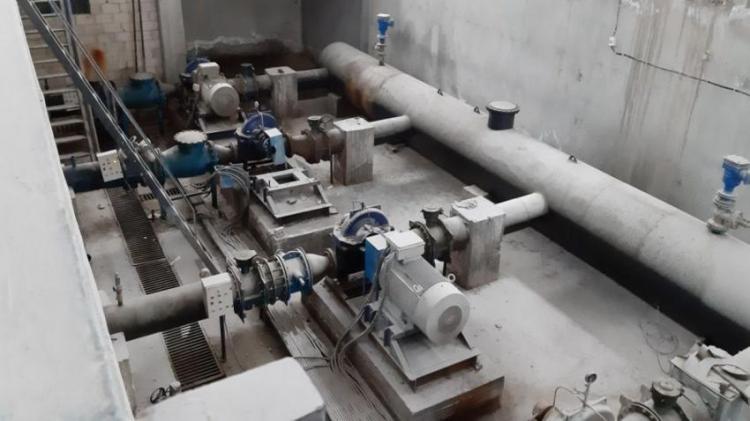Turkish forces cut water from Aluk station and prevent workers from entering
Hasakah – North-Press Agency
Jindar Abdel Qader
On Thursday morning, Turkish forces again stopped pumping water from Aluk station in the countryside of Sere-Kaniye, which supplies the city of Hasakah and the towns of Tal Tamr, al-Hol, Abu Rasin (Zargan) and al-Shaddadi and their surrounding villages with water, without revealing the reasons, according to the Water Directorate in Hasakah.
A source from the Directorate of Water of the Autonomous Administration in Hasakah told North-Press that Turkish forces stopped pumping water hours ago this morning.
He added that Turkish forces prevented the station's workers from entering it on April 28th, and the water was cut off on Thursday morning without any information as to why.
Turkish authorities have stopped pumping water to the station several times in the past three months, leading to the suffering of hundreds of thousands of civilians, according to the United Nations Children's Fund (UNICEF) in a statement posted on its website about the incident last March.
The United Nations Office for the Coordination of Humanitarian Affairs (UNOCHA) in Syria said last month that the disruption of the Aluk water station in Sere-Kaniye, north of Hasakah, could have a devastating effect on vulnerable communities throughout northern Syria because of the risks of the spread of the COVID-19 pandemic.
Human Rights Watch said in a statement earlier, "The failure of Turkish authorities to ensure adequate water supplies for Kurdish-controlled areas in northeastern Syria is detrimental to the ability of humanitarian organizations to provide vulnerable communities and protect them in light of the spread of the coronavirus."
In a press conference in March, the Water Directorate in Hasakah announced its intention to dig wells to supply the region with water "because of the repeated provocations by Turkish forces and their affiliated armed opposition groups by cutting off water to hundreds of thousands of people in northern and eastern Syria in order to obtain electricity and a number of other materials."

